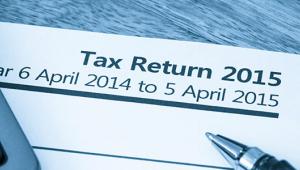In its analysis of the main parties’ tax and welfare plans published today, the think-tank highlighted no party was proposing this ‘rational and long overdue’ change.
Both Labour and the Liberal Democrats are proposing levying a new charge on homes worth more than £2m, a so-called mansion tax, as part of the council tax system.
However, the IFS said parties should concentrate on fixing the tax as a whole rather than layering a separate tax on top of it.
‘Given the structure of council tax – it is regressive in that you pay a lower percentage of property value the more valuable the property, and it is capped – there is a case for reform which would increase the tax on more expensive properties,’ the Taxes and Benefits: The Parties' Plans briefing stated.
The IFS’ analysis of the three main party manifestos also found that, with significant deficit reduction needed to balance the public finances, average household income will likely be reduced by tax and benefit changes in the next parliament.
Looking at the specific proposals, the think-tank highlighted the Conservatives propose a small net cuts to taxes and large cuts, worth £12bn, to benefits. Labour proposes a rise in taxes, including reinstating the 50p top rate of income tax and levying a new mansion tax, but with little change to benefits spending, with the Liberal Democrats are in between in both respects.
However, all parties’ plans to raise tax revenue include elements that are ‘vaguely defined [and] opaque’, the IFS added. In many cases the proposals would lead to unnecessary increases in complexity and inefficiency in the tax system.
Where benefit cuts are proposed, they are either largely unspecified (by the Conservatives), vague (the Liberal Democrats) or trivially small relative to the rhetoric being used (Labour), they added.
Senior research economist Robert Joyce, one of the authors of the report, said: ‘The Conservatives have continued to fail to explain how they would achieve the substantial cuts to social security they say they would deliver in the first half of the coming parliament. These will be neither easy nor painless to deliver.
‘Meanwhile, Labour claims to be taking tough decisions by removing winter fuel payments from a small fraction of pensioners and limiting child benefit increases to 1%. The former will save almost nothing – about one pound in a thousand spent on pensioner benefits. The latter is likely to save literally nothing. The manifestos have not helped us towards a sensible debate on the future generosity or structure of the benefits system.’
Proposals by the Conservative and Liberal Democrat to increase the personal allowance to £12,500 by the end of the parliament would cost about £4bn per year in today’s prices.
Unlike with the increases to £12,500 in the last parliament, most income-tax paying pensioners would benefit and – given that 44% of adults now have incomes too low to pay income tax – further increases are of most value to those in the middle and upper-middle of the income distribution.
James Browne, another of the report's authors, said the parties had promised little action to make the tax system more coherent. ‘Damage has been done, and more is being proposed, to pension taxation, while proposals on the taxation of housing lack coherence.
‘There is a limit to the extent that we can continue to pretend that tax revenues can rise while protecting the vast majority of people. Just because a tax rise hits “the rich” or is labelled “anti-avoidance” does not necessarily mean it is harmless,’ he said.





















